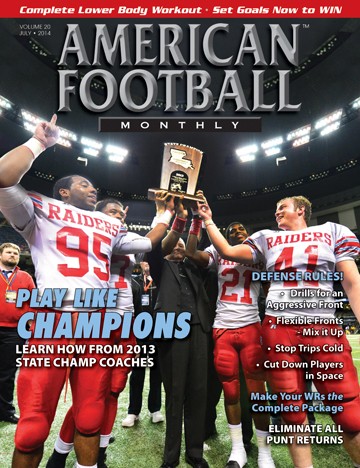AMERICAN FOOTBALL MONTHLY THE #1 RESOURCE FOR FOOTBALL COACHES
|
|
Article Categories
|
Coach to Coach: The Mental Fundamentals: Goal Settingby: Tim MitchellAssistant Coach, Fossil Ridge High School (CO) and Sports Psychology Consultant© More from this issueBuilding Perspective
The first game is just around the corner, so we call a team meeting to assess our direction for the season and set some goals. When I ask the kids what their goals are for the season they seem to reply with the same answer every year, ďwin league, win state and beat our rivals.Ē Winning seems to be the theme for every goal. Even the coaches Iíve worked with base all of their goals around winning. It reminds me of that famous Lombardi quote ďWinning isnít everything, itís the only thingĒ.
Well, in pro football winning is everything and letís not forget what a master tactician Lombardi was. Lombardi also had some amazing quotes about effort and desire. I know it hurts to lose and Iím not suggesting we should embrace losing or be satisfied with it. What I am suggesting i....The full article can only be seen by subscribers.
Subscribe today!

|
|
|
NOT A SUBSCRIBER?
Subscribe
now to start receiving our monthly magazine PLUS get INSTANT
unlimited access to over 4000 pages of 100 percent football coaching
information, ONLY available at AmericanFootballMonthly.com!
|
|
|
HOME
|
MAGAZINE
|
SUBSCRIBE
|
ONLINE COLUMNISTS
|
COACHING VIDEOS
|
Copyright 2025, AmericanFootballMonthly.com
All Rights Reserved






